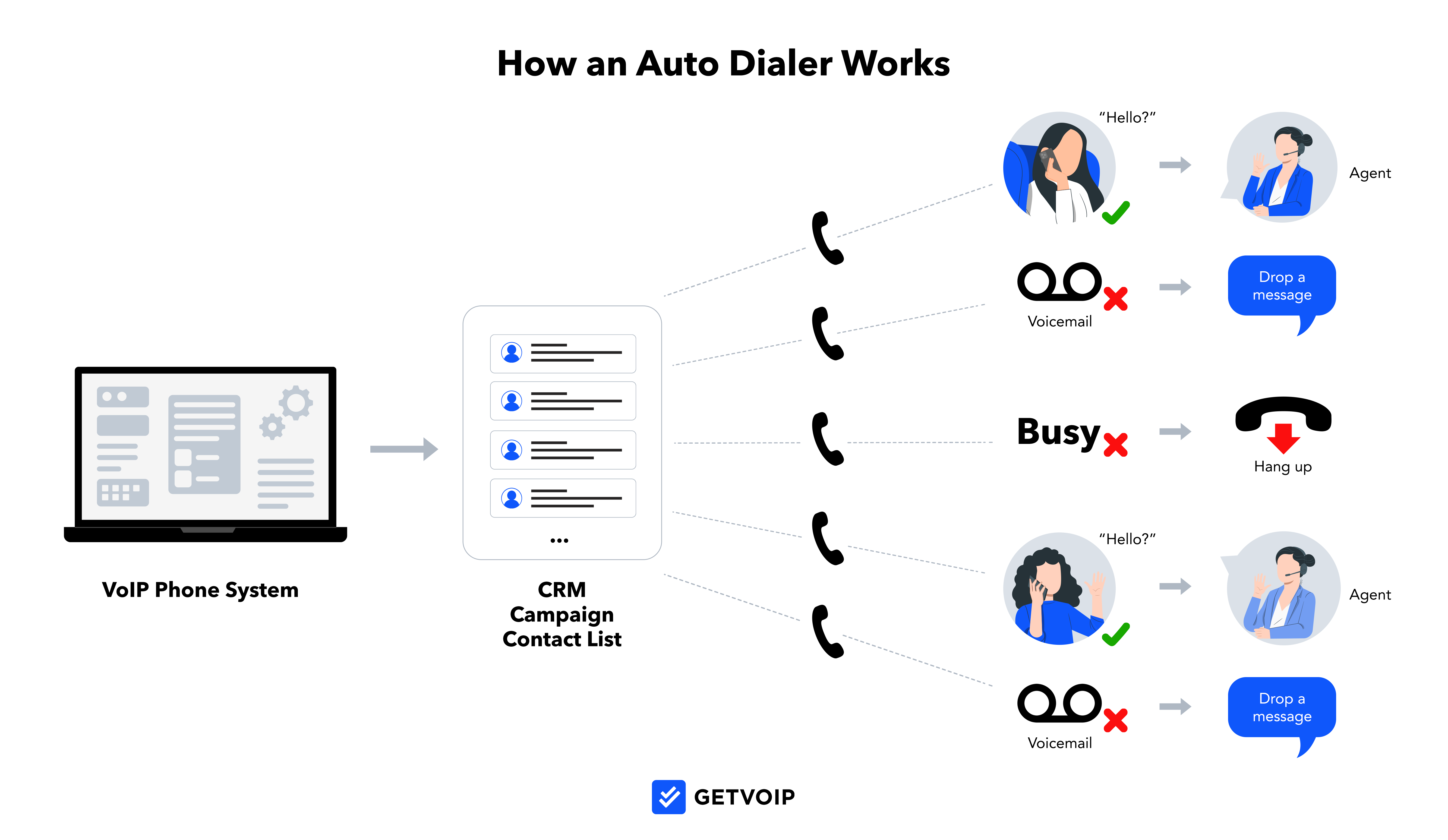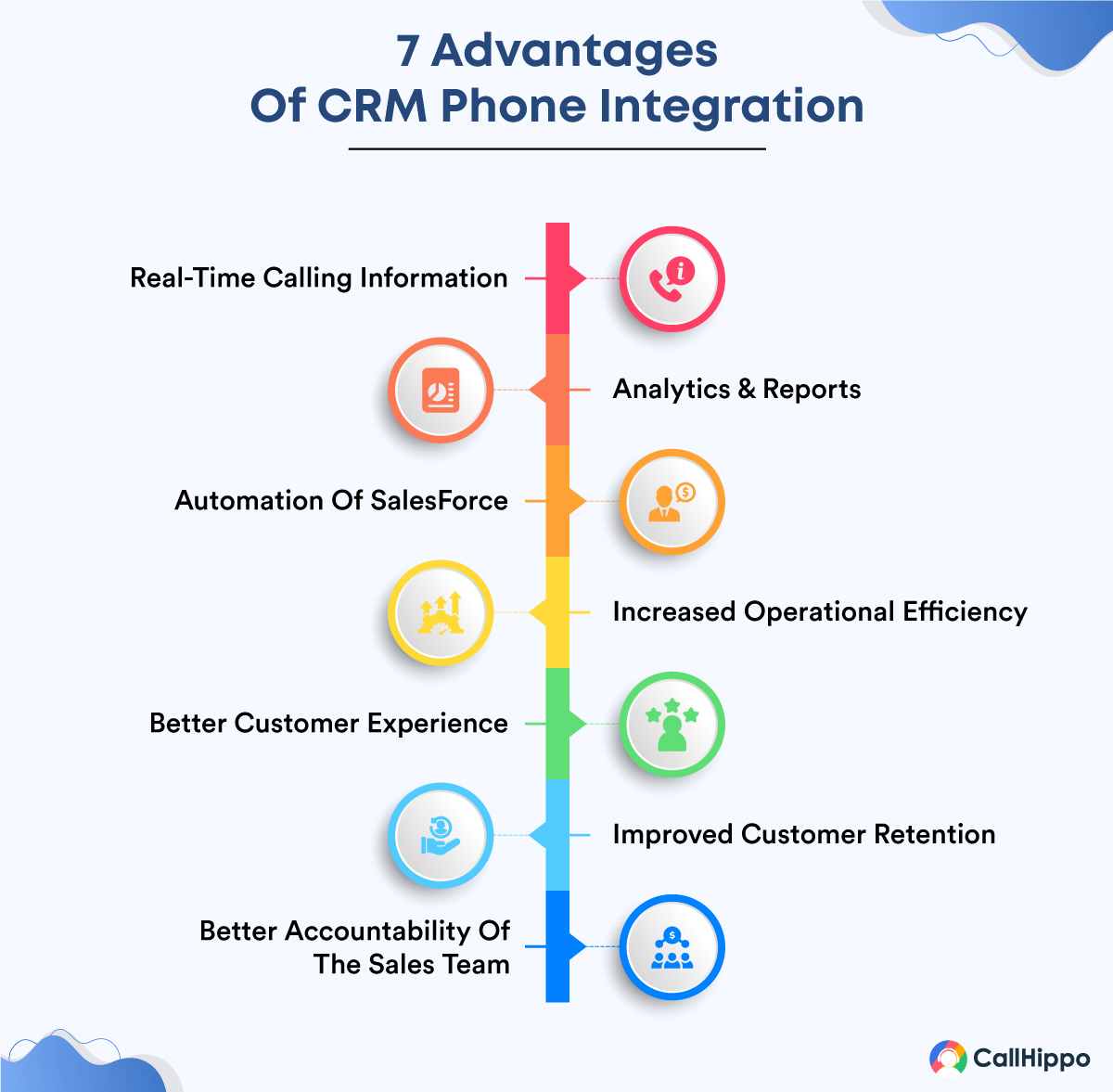Introducing CRM phone system, an innovative solution that revolutionizes the way businesses connect with their customers. By integrating a CRM system with a phone system, organizations can streamline their operations, enhance customer experiences, and gain a competitive edge.
CRM phone systems offer a plethora of benefits, including improved communication, increased efficiency, and data-driven insights. They seamlessly connect customer data with phone interactions, providing a comprehensive view of each customer’s journey.
Key Features of a CRM Phone System

CRM phone systems offer a comprehensive suite of features designed to enhance customer interactions and streamline business processes. By integrating a CRM phone system with other business applications, businesses can gain a 360-degree view of their customers, automate tasks, and improve overall efficiency.
Here are some of the essential features of a CRM phone system:
Call Logging
- Tracks and records all inbound and outbound calls, including caller information, call duration, and call notes.
- Provides a centralized repository for call data, making it easy to track customer interactions and identify trends.
Caller ID
- Displays the caller’s name and contact information on the agent’s screen.
- Allows agents to quickly identify customers and access their relevant information, improving the overall customer experience.
Click-to-Dial
- Enables agents to initiate outbound calls directly from the CRM interface.
- Eliminates the need for manual dialing, saving time and increasing efficiency.
Call Routing
- Automatically routes incoming calls to the most appropriate agent or department based on predefined rules.
- Ensures that customers are connected to the right person quickly and efficiently, improving customer satisfaction.
Call Recording
- Records and stores customer interactions for training, quality assurance, and dispute resolution purposes.
- Provides valuable insights into customer behavior and agent performance, helping businesses improve their processes.
CRM Integration
- Integrates with the business’s CRM system, providing agents with access to customer data, notes, and history.
- Allows agents to have a complete view of the customer’s interactions with the business, resulting in more personalized and efficient customer service.
Types of CRM Phone Systems

CRM phone systems come in various types, each with its unique features and benefits. Understanding the different types can help businesses choose the best solution for their specific needs.
On-Premise CRM Phone Systems
- Installed and hosted on the business’s own servers.
- Advantages:Greater control over data and security, potential cost savings in the long run.
- Disadvantages:Higher upfront costs, ongoing maintenance and support requirements.
- Examples:Businesses with sensitive data, large call volumes, or a need for extensive customization.
Cloud-Based CRM Phone Systems
- Hosted by a third-party provider and accessed via the internet.
- Advantages:Lower upfront costs, scalability, ease of use.
- Disadvantages:Less control over data and security, potential connectivity issues.
- Examples:Businesses of all sizes, especially those with remote or distributed teams.
Integrated CRM Phone Systems
- Combine CRM software with a phone system into a single platform.
- Advantages:Seamless integration between CRM and phone functions, improved communication and collaboration.
- Disadvantages:May be more expensive, less flexibility in choosing the best CRM or phone system.
- Examples:Businesses that rely heavily on both CRM and phone communication.
Benefits of Using a CRM Phone System

Integrating a CRM phone system into your business operations can yield a multitude of benefits that enhance customer interactions, boost sales performance, and optimize operational efficiency.
Numerous studies and case studies have demonstrated the positive impact of CRM phone systems on business outcomes. For instance, a study by Salesforce found that companies using a CRM phone system experienced a 25% increase in sales productivity and a 15% improvement in customer satisfaction.
Improved Customer Satisfaction
CRM phone systems empower businesses to provide exceptional customer service by enabling agents to access customer data, call history, and preferences in real-time. This allows agents to personalize interactions, resolve issues swiftly, and build stronger customer relationships.
- Personalized Interactions:CRM phone systems provide agents with a comprehensive view of customer interactions, enabling them to tailor conversations based on customer preferences and past experiences.
- Efficient Issue Resolution:By having access to customer history, agents can quickly identify and address customer concerns, reducing resolution times and enhancing satisfaction.
- Stronger Customer Relationships:CRM phone systems facilitate proactive outreach, allowing businesses to nurture customer relationships by providing personalized recommendations, offering support, and following up on inquiries.
Increased Sales
CRM phone systems play a vital role in driving sales growth by providing sales teams with valuable insights and tools to optimize their performance.
- Targeted Outreach:CRM phone systems enable sales teams to identify and target qualified leads based on specific criteria, ensuring that their efforts are focused on the most promising prospects.
- Improved Sales Productivity:Automated features, such as call scheduling, lead qualification, and follow-up reminders, streamline the sales process, allowing sales teams to allocate more time to closing deals.
- Enhanced Collaboration:CRM phone systems facilitate seamless collaboration between sales and customer service teams, ensuring that customer needs are met effectively and sales opportunities are not missed.
Reduced Costs, Crm phone system
CRM phone systems can help businesses reduce operational costs in several ways.
- Elimination of Redundant Systems:CRM phone systems consolidate multiple communication channels into a single platform, eliminating the need for separate phone systems, voicemail systems, and other communication tools.
- Reduced Labor Costs:Automated features, such as call routing, voicemail transcription, and self-service options, reduce the need for manual intervention, freeing up agents to focus on higher-value tasks.
- Improved Efficiency:Streamlined workflows and centralized data management enhance operational efficiency, reducing the time and resources required to complete tasks.
Considerations for Choosing a CRM Phone System
Choosing the right CRM phone system is crucial for businesses to enhance communication, streamline processes, and improve customer satisfaction. Here are key factors to consider when making a decision:
Scalability
Businesses should consider the scalability of the CRM phone system to meet their current and future needs. The system should be able to accommodate growth in the number of users, call volume, and features required.
Security
The security of the CRM phone system is paramount to protect sensitive customer and business data. Businesses should look for systems that offer robust security measures, such as encryption, access controls, and data backup.
Ease of Use
The CRM phone system should be easy to use for both agents and customers. A user-friendly interface, intuitive navigation, and customizable features can enhance productivity and improve the overall user experience.
Best Practices for Implementing a CRM Phone System

Implementing a CRM phone system successfully requires careful planning and execution. Here are some best practices to guide you through the process:
To ensure a smooth implementation, follow a step-by-step approach and seek professional assistance when needed. Training your team, migrating data accurately, and providing ongoing support are crucial for maximizing the system’s benefits.
Planning and Preparation
- Define your business goals and objectives for implementing a CRM phone system.
- Research and select a CRM phone system that aligns with your requirements and budget.
- Establish a project team and assign roles and responsibilities.
- Create a detailed implementation plan outlining timelines, milestones, and resources.
Data Migration
Accurate data migration is essential for a successful implementation. Follow these steps:
- Clean and prepare your existing data before migration.
- Map your data fields to the corresponding fields in the new CRM phone system.
- Test the data migration process thoroughly to ensure accuracy.
- Monitor the data migration process and make adjustments as needed.
Training and Adoption
Proper training is crucial for user adoption and system success. Ensure that:
- Training is tailored to different user roles and responsibilities.
- Training materials are comprehensive and easy to understand.
- Training is conducted by experienced professionals or certified trainers.
- Users have ample opportunities to practice and ask questions.
Ongoing Support and Maintenance
To ensure the long-term success of your CRM phone system, provide ongoing support and maintenance:
- Establish a support team to address user inquiries and resolve issues promptly.
- Regularly update the system with the latest software and security patches.
- Monitor system performance and usage to identify areas for improvement.
- Seek professional assistance for advanced troubleshooting or system enhancements.
Case Studies and Examples

Numerous businesses have experienced remarkable success by implementing CRM phone systems. These case studies and examples highlight the challenges they overcame, the solutions they employed, and the tangible benefits they realized.
Company A: Enhanced Customer Service and Increased Sales
Company A, a leading provider of financial services, faced challenges in managing customer interactions effectively. They implemented a CRM phone system that integrated with their existing CRM platform. This allowed their agents to access customer information instantly, providing personalized and efficient support.
As a result, customer satisfaction scores soared, and sales conversion rates increased significantly.
Company B: Streamlined Operations and Reduced Costs
Company B, a healthcare provider, struggled with inefficient call routing and lengthy hold times. They deployed a CRM phone system that automated call routing based on caller preferences and agent availability. This streamlined their operations, reduced call wait times, and freed up agents to focus on providing exceptional patient care.
The system also integrated with their billing software, automating billing processes and reducing administrative costs.
Company C: Improved Collaboration and Productivity
Company C, a software development firm, faced challenges in coordinating project communication and tracking customer interactions. They implemented a CRM phone system that provided a central platform for all communication channels, including phone, email, and chat. This enhanced collaboration among team members, improved project visibility, and increased productivity.
Ending Remarks
In conclusion, CRM phone systems are a powerful tool for businesses seeking to enhance customer satisfaction, increase sales, and reduce costs. By carefully considering the key factors discussed in this guide, businesses can choose and implement a CRM phone system that aligns with their specific needs and drives their success in the modern business landscape.
Q&A
What are the key features of a CRM phone system?
CRM phone systems offer a range of features, including call logging, contact management, call routing, and integration with other business applications. These features enhance customer interactions, streamline processes, and provide valuable insights.
How can a CRM phone system benefit my business?
CRM phone systems provide numerous benefits, such as improved customer satisfaction, increased sales, reduced costs, and enhanced efficiency. They offer a centralized platform for managing customer interactions, providing a complete view of each customer’s journey.
What are the different types of CRM phone systems available?
There are various types of CRM phone systems, including cloud-based, on-premise, and hybrid systems. Each type offers unique advantages and disadvantages, and the best choice depends on the specific needs and preferences of the business.
